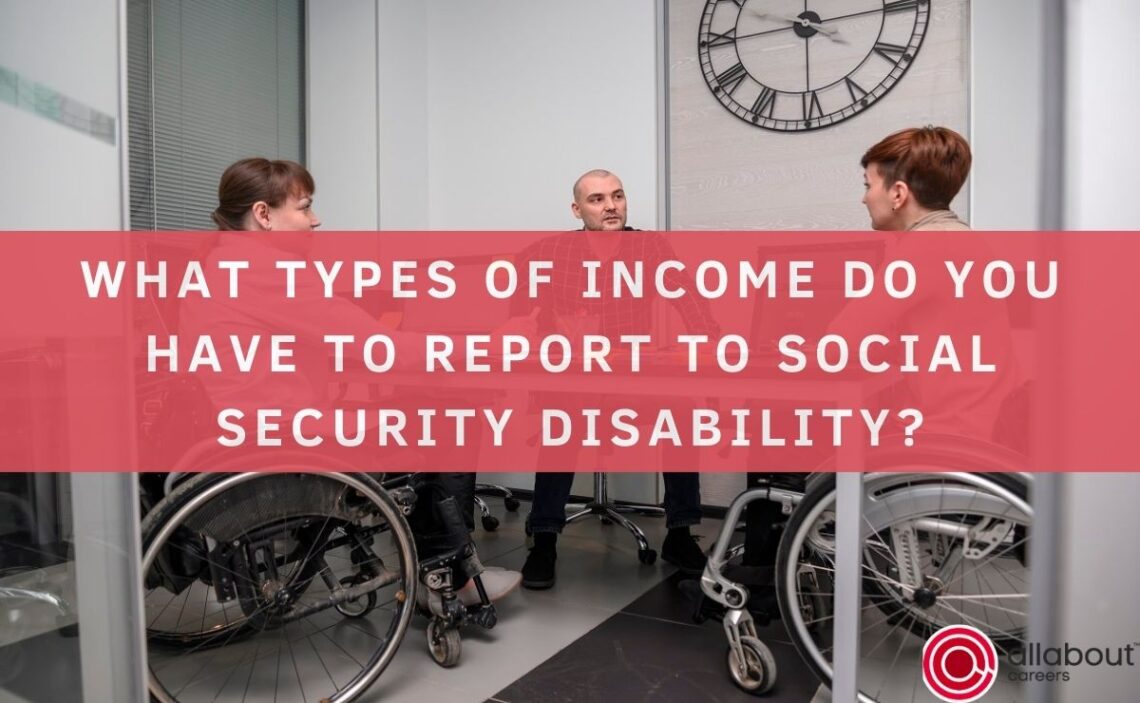Do you want to apply for social security benefits? Are you a person with a disability, but are not sure what you need to do to apply for one of the Social Security Disability (SSD) programs? You should already know that the Social Security Administration (SSA) has more than 80 years of experience supporting millions of people in the United States who, for one reason or another, require financial support. That’s where the disability review after age 50 has come from.
SSA has two programs designed to help millions of people with disabilities throughout the United States: Social Security Disability Income (SSDI) and Supplemental Security Income (SSI). The eligibility criteria for each vary, but the major difference is in the amount of your earned income. Keep in mind that this information is tied to the social security payment and the social security card that you may later obtain.
What Is The Difference Between Social Security And Supplemental Security Income?
At first glance it can be confusing to recognize which Social Security Administration program for people with disabilities you should apply for. For this reason, you must know the conditions to the letter to allocate your time to the right federal assistance program according to your situation and disability.
In both programs you must meet a series of requirements such as medical condition, income and ability to work to enjoy their benefits, but the big difference is in the requirements that have to do with your income. However, some people meet the right criteria for both.
[wpdatatable id=443]Social Security Disability Income
This program has helped well over 8 million people in the country and to get it you must have a verifiable disability that prevents you from working for at least 12 months. In addition, for this program, you must have several credits based on your hours worked and the amount of your income without deductions.
In the case of SSDI, your income plays an important role, as does the payment of Social Security taxes for the work you do. If you are not visually impaired, have an income of more than $2040 a month, and meet the above requirements, you can apply for this program. If you are visually impaired and earn more than $1,220 a month, you can also qualify for SSDI.
Finally, keep in mind that the monthly income you will get from this program will depend directly on how long you have been working and the earnings you have made during that time.
Supplemental Security Income
Social Security taxes are not required to apply for this benefit. In fact, this program is designed for those who cannot afford to pay Social Security taxes because of their low hourly earnings.
For SSI, if you are visually impaired and earn less than $1,220 per month, you are eligible for this program. The same is true for those with other types of disabilities who earn less than $2040 per month.
Other factors that are considered are any food and shelter assistance you receive from non-governmental organizations and also any income you earn from your marriage or parents.
For this program, there is an estimate of what you will receive monthly, although it will vary depending on the state where you receive it. In this case, you will receive at least $917 if you live alone and $1,371 for a couple.
What types of income should I have to report to social security disability?

Basically, you must report all income and earnings from your job and other sources. Furthermore, in all cases, you must report any changes in your income, i.e., whether it went up or down, whether your employer stopped paying you, or whether you received any other benefits for what you do.
If in your case you are not the one with the disability, but you receive the benefit because your family member is insured, you must report for them. Keep in mind that SSA divides the types of income into four groups, two of which apply to SSDI and two to SSI:
- Earned Income
- Unearned Income
- Deemed Income
- In-Kind Income
Types of Income for SSDI
For SSDI you must report earned income, what you receive in exchange for the service or good you provide, and unearned income, which is all income you earn from benefits or other sources. This is the income that SSA must be aware of:
- Earned income (whether you are an employee or self-employed)
- Vacation pay
- Sick pay
- Pensions not subject to Social Security tax
- Compensation and benefits
Types of Income for SSI
For this program, you must report deemed income, income earned by a legal partner or parent, and In-kind income, which must be earned by a spouse or parent.
Do I have to report the expenses associated with my disability?
Yes, you should! In the case of Social Security Disability, you must report all those expenses generated by your or your family member’s current condition that help you perform your job. These are the expenses you must report:
- Expenses for the purchase of medicines
- Expenses or rental of medical equipment
- Expenses for hiring special services (transportation, specialists, therapist, etc.)
- Expenses for hiring job assistance services (coaches and mentors)
Keep in mind that SSA will periodically review the progress of the situation and the progress of your disability, so it is mandatory to make the necessary reports in a timely manner to avoid uncomfortable situations.
What happens if I don’t report changes to the SSA?
Social Security Administration is a significant institution in the country, so if you hide information or deliberately lie, you can be fined or go to jail depending on the seriousness of the offense you incur before the SSA.
If you fail to report changes in your employment status or disability accurately and in a timely manner, your financial benefit will be reduced depending on how many times you fail. And if you receive more payments than you should, you will be required to reimburse the federal office.
References
-
“Article Unavailable · FAQ | SSA.” FAQ Home · FAQ | SSA, https://faq.ssa.gov/en-us/Topic/article/KA
-
Clauson. “What Types of Income Do You Have To Report To Social Security Disability?” Clauson Law Blog, https://www.clausonlaw.com/blog/social-security-disability/what-types-of-income-do-you-have-to-report-to-ssd/
-
“INCOME REPORTING FOR SOCIAL SECURITY DISABILTY BENEFITS.” Ssagov, https://www.ssa.gov/disability/Documents/T2%20Reporting%20%20Disability%20doc%20final.pdf
-
ScullyDisability. “What Types of Income Do You Have to Report to Social Security? – Scully Disability Law – Disability Law Firm in Munster, Indiana Serving NW Indiana and Chicagoland Residents.” Scully Disability Law – Disability Law Firm in Munster, Indiana Serving NW Indiana and Chicagoland Residents, https://scullydisabilitylaw.com/what-types-of-income-do-you-have-to-report-to-social-security/
-
“Social Security Disability Starter Kit.” Hdsa Org, https://hdsa.org/wp-content/uploads/2021/04/Social-Worker-Disability-Starter-Kit.pdf


